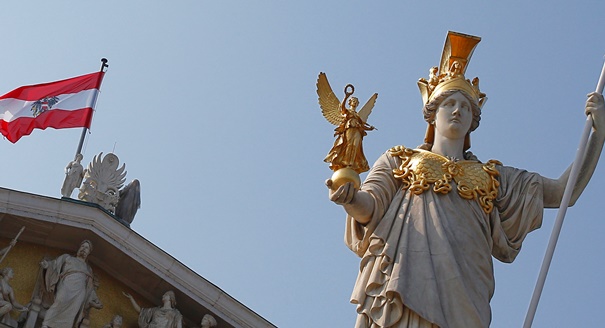Each little village in the Salzburg area has its war memorial, which remembers all men who died in the two world wars of the past century. At the start of the first one, the Austro-Hungarian empire was the one great power which actually set off the world crisis. It paid a heavy price for that. By the start of World War II, Austria, a small piece of the defunct former empire, had been absorbed by the Nazis and became part of Greater Germany. Young Austrian men got drafted again and sent to the front, many of them never to return to their villages. Slightly over half of those remembered in Henndorf, Seekirchen, and Fuschl died on the eastern front, from Leningrad to Voronezh to the North Caucasus.
Since its restoration as a sovereign state in 1955, Austria has been a peaceful nation. In 1995, it joined the European Union. When it sends soldiers abroad these days, they go as peacekeepers, under a United Nations mandate. In foreign policy terms, its delicate and at times precarious position as a neutral island in a divided Europe is history. Since the end of the Cold War, its EU partners who are also members of NATO, have taken care of the crises next door in the Balkans, and, through the dual enlargement of their institutions, have extended the zone of stable peace to include nearly all of Austria’s former communist neighbors. The only outlier, Serbia, is on track toward eventual membership too.
Firmly embedded within the Union, Austria hardly needs or can afford foreign policy in a classic sense. Its highly professional foreign service faces other challenges. Austria is on the lookout for a distinct international identity. It is jarring that sometimes it is confused with Australia. To promote the country’s modern image, the cabinet in Vienna this August approved a program of nation-branding. Advised by the British guru Simon Anholt, the ministers are seeking to expand the bridge-building function which Austria has traditionally served between Europe’s east and the west. From now on, Austria should be active in the Middle East and Central Asia too. Austrian officials abroad are also tasked with promoting the values of the rule of law and social partnership. Ninety-nine years after the fateful decision to punish Serbia for the killing in Sarajevo of its archduke, Austria’s foreign policy has turned into brand promotion. A metamorphosis on the scale of a Kafka, only so much happier.
